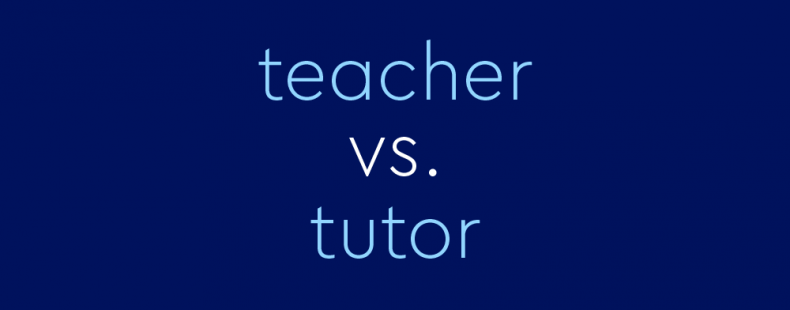By Ashley Austrew
Teachers are some of the most important people in a child’s life. We honor them on World Teacher Day on October 5 and May, when National Teacher Day is held during the first full week. It’s only fitting, after all, because teachers spend almost every day with kids, teaching them not only the basic skills they need to grow and thrive, but also how to understand and engage with the complex world around them.
We don’t need a holiday to help us recognize that teaching is a big job, and educators tackle it with grace. But even kids with the most amazing teachers can still use an extra educator in their corner.
That’s why it’s time to talk about tutors. A lot of people assume that kids only need a great teacher in order to succeed. In reality, almost any kid could benefit from even a few sessions with a skilled tutor who can help identify their learning style, interests, and any gaps in their day-to-day learning. This type of assessment can be offered in person or via online tutoring.
How is that different from what a teacher does? We’re glad you asked. Read on for a look at the subtle differences between tutors and teachers, and why a little extra academic support is never a bad idea.
What is a teacher?
We all know the answer to this one, right? A teacher is “a person who teaches or instructs, especially as a profession.” The word is most commonly used to refer to professional teachers who have training, experience, and expertise in their subjects.
Sometimes the names we have for teachers even vary based on what they teach and their education level. For example, in college, teachers are often called professors or instructors. Professor is used for those who’ve achieved the highest academic rank in a college or university. Meanwhile, instructor may be used to describe “a teacher in a college or university who ranks below an assistant professor.”
Of course, there are many people who facilitate, participate in, and add value to education who aren’t necessarily teachers. A principal, superintendent, advisor, and anyone involved in planning or directing education are often called educators. You may also use teacher to describe people you learn from in an unofficial capacity. Perhaps you consider your mother to have been one of your life’s great teachers, or you have a grandfather who’s a fantastic teacher in the kitchen. That counts, too!
What is a tutor?
A tutor is also a type of educator or “a person employed to instruct another in some branch or branches of learning, especially a private instructor.” Tutoring goes hand in hand with teaching and can be an important tool in helping students get the most out of their education. Tutors are hired to help with specific branches of learning. A tutor may be a teacher who doesn’t have an institutional connection, or they may be hired by a university or other service to aid students with difficult subjects and test prep. For example, math tutors or English tutors may be employed as private instructors to work with an individual or with small groups of students.
The word tutor comes from the Latin tūtor, or “protector.” It’s a variant stem of tuērī, which means “to guard.” Like an extra guardian, a tutor takes students under their wing and helps guide their learning, paying special attention to areas of interest or struggle, and offering them the unique chance to learn in a way that’s tailored to their individual strengths, needs and abilities.
Tutor isn’t a dirty word
Many people see tutors as the people who step in only when a child is failing a class or in danger of not passing an important test. For this reason, some parents (and students) may worry that needing a tutor reflects poorly on them, and they might feel nervous or insecure about hiring one. In reality, nothing could be further from the truth.
Tutors give students academic support and guidance they may not get in their regular classroom setting, and that’s valuable to every student, regardless of where their grades fall. In fact, it’s often more beneficial to hire a tutor when your student isn’t failing a class. A good tutor can help students hone in on areas where they need to focus and put in extra work before they even begin to struggle, so they master new skills right off the bat and excel in school.
Tutors are an invaluable part of a child’s educational team, and they often have more flexibility than a regular teacher. That means they can expand on specific lessons and concepts that kids need more practice with. They also work with parents and teachers to figure out what each child truly needs to help them succeed, and to prevent any bumps in the road that may leave kids falling behind.
Tutors are there to support kids, teachers, and parents, too. Don’t think of tutoring as an extra or as a last resort for kids in academic trouble. Think of tutors as an affordable asset that will help give any kid the confidence they need to succeed.
Ashley Austrew is a freelance journalist and writer from Omaha, Nebraska. Her work has been published at Cosmopolitan, Scary Mommy, Scholastic, and other outlets. For more by Ashley, read: Leave The Best Impression With Our Tips For National Proofreading Day | 5 Crafty Ways To Get Your Kid (And You) Into Poetry | “Does ‘Spark Joy’ Mean The Same Thing In English And Japanese?” | Is There A Difference Between “Calling In” And “Calling Out”? | Why Do Journalists Avoid The Word “Liar”? | Make Your Writing The Star Of National Grammar Day With These Tips









